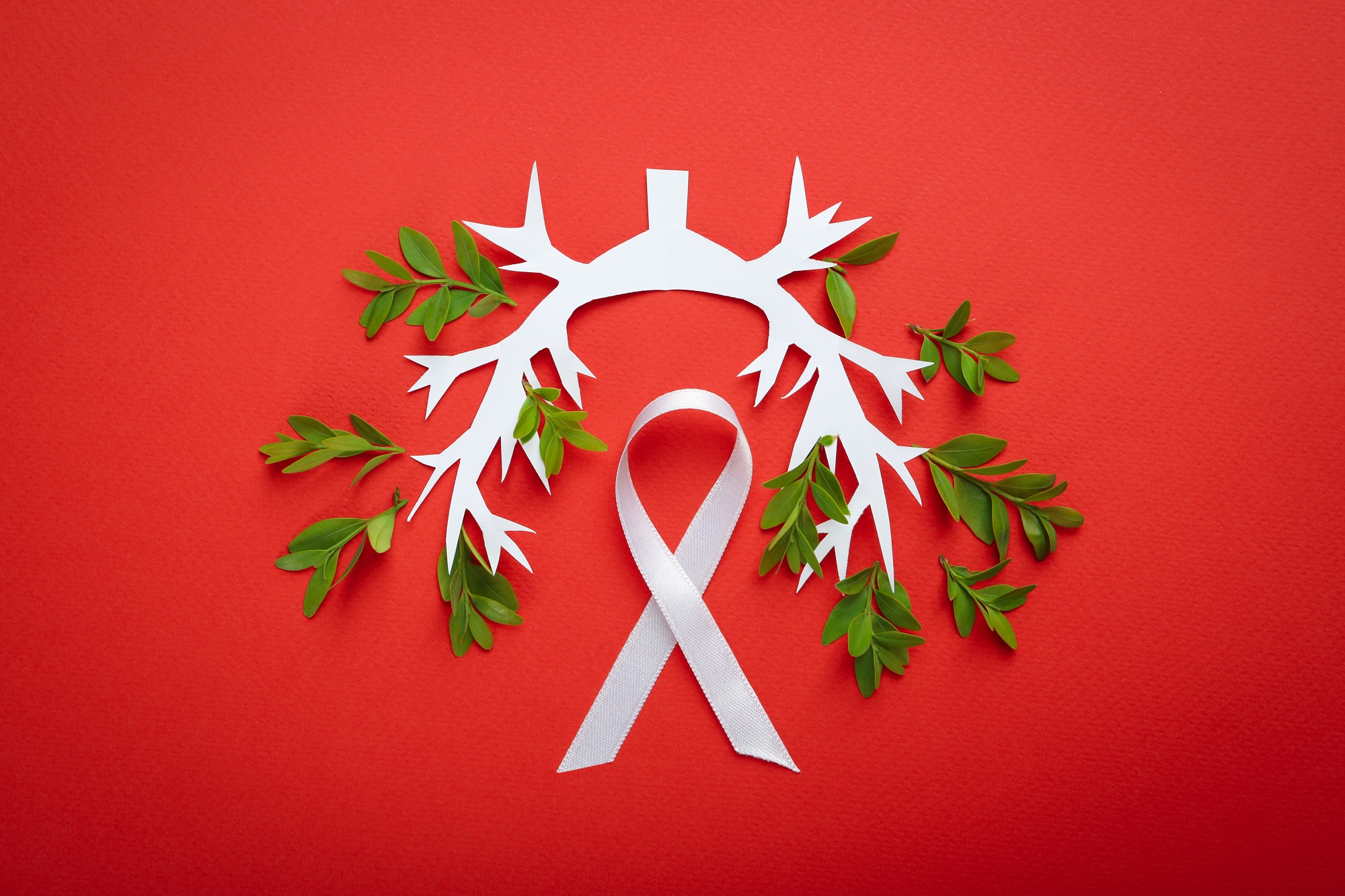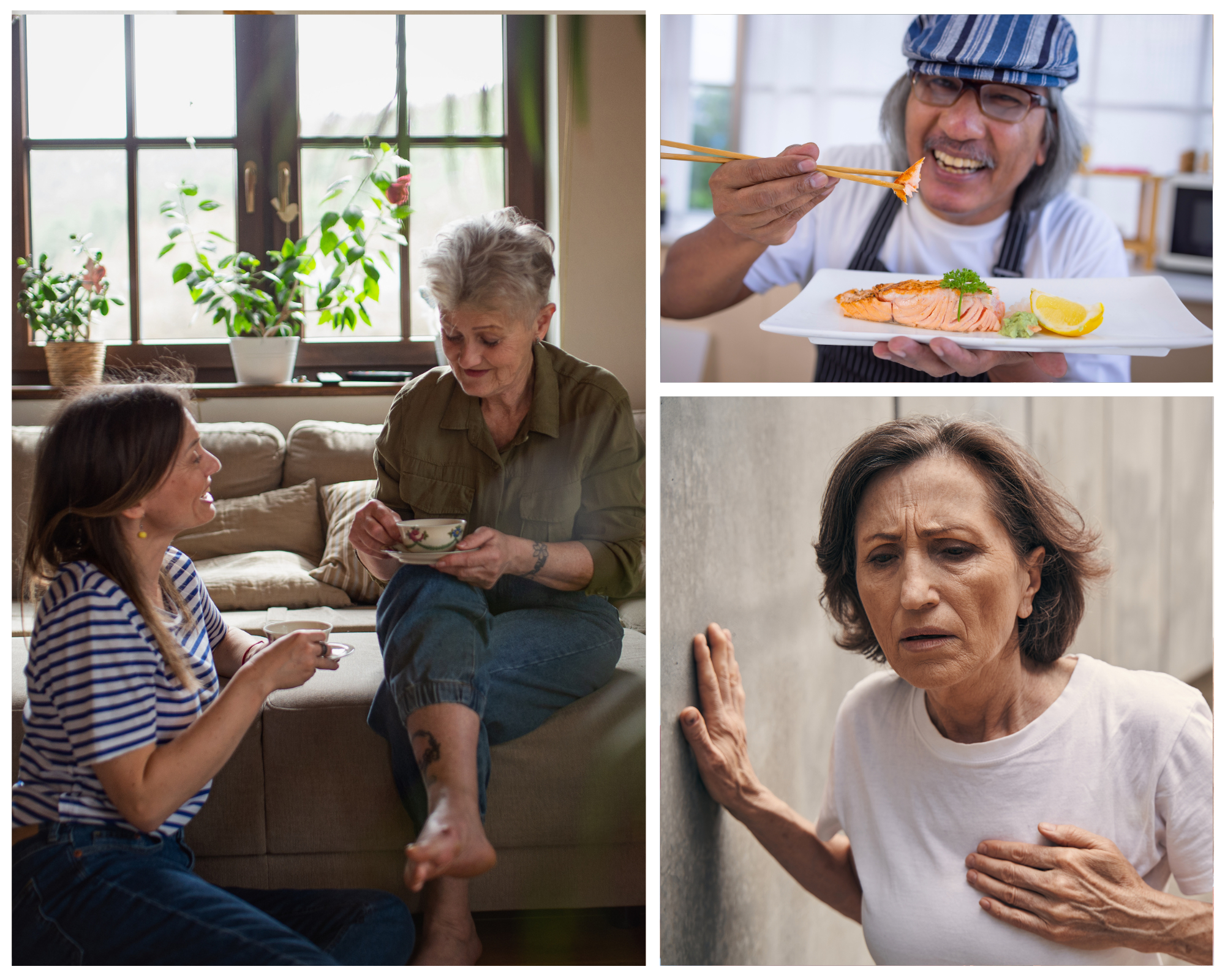
Lung Cancer Awareness for Seniors
November 15, 2022In addition to being American Diabetes Month, November is also Lung Cancer Awareness Month. Lung cancer is one of the leading causes of cancer death in both men and women—more than colon, breast, and prostate cancers combined. While case and death rates have decreased exponentially over the past handful of years, lung cancer awareness for seniors is especially important.
Smoking rates peaked in 1964 when a bulk of the baby boomer generation were young adults. At that time, 42% of adults regularly smoked. While that number has decreased by about 70% since then, the effects of long-term smoking can cause lung cancer even decades later. To make sure they live out their years as healthfully as possible, seniors should be aware of the symptoms of lung cancer and the ways to prevent it.
What causes lung cancer?
The most commonly understood cause of lung cancer is excessive smoking. However, that isn’t the only reason a person may develop the condition. Exposure to toxic levels of air pollution, asbestos, radon, and carbon monoxide can all impact your likelihood of developing cancer. A family history of the condition makes you predisposed.
Seniors are more likely to experience symptoms and be diagnosed with the disease. This could be due to the fact that tumors take a long period of exposure to toxic chemicals to develop. In addition, the immune systems weaken with age.
What are the symptoms of lung cancer?
Some of the earliest symptoms of lung cancer may resemble a cold or other less serious conditions. Take note of the persistence of certain symptoms in conjunction with other symptoms. Treatment for lung cancer is most effective when caught in an early stage.
Symptoms include:
- A persistent cough that gets worse
- Shortness of breath
- Chest pain that worsens with deep breaths, coughing, or laughing
- Hoarseness
- Coughing up blood or rust-color spit
- Loss of appetite
- Fatigue
- New onset of wheezing
If you notice any combination of symptoms, get in contact with your doctor as soon as possible. Early treatment yields the most significant success rates.
How can I avoid lung cancer?
While there is no true action plan that will make you immune to the condition, there are things you can do to lower your risk of developing it.
Stop smoking
A vast majority of lung cancers trace back to the patient’s past, or current, smoking habit. If you smoke regularly, or even casually, your risk skyrockets. In fact, the risk of developing lung cancer is 20 times higher in those who smoke compared to those who do not.
Smoking low-tar or low-nicotine cigarettes does not lower your risk. As a result, the best thing you can do for your health is quit smoking.
Avoid secondhand smoke
Even if you don’t smoke, you could still be at risk. Regular exposure to secondhand smoke (or smoke from someone else’s cigarettes) can increase your risk of developing lung cancer by 20 to 30%. You obviously cannot force your loved ones to stop smoking, however, you can make a point to not be in the same room as them when they do.
Test your home for radon
Radon is a naturally occurring gas that has no smell or taste and is unfortunately deadly. It is potentially the second leading cause of lung cancer among adults in the United States. Most people are exposed to radon by leaking cracks or gaps in the foundation of their homes.
The only way to know whether or not you are exposed to radon is to have your home tested—and it’s easier to do than you might think. Radon test kits are available for a relatively low price. If the score comes back high, you need to contact your state office to have the problem fixed.
Adapt a healthier lifestyle
Some studies show that those who lead healthier lifestyles (such as quality diets and regular exercise) are at a lower risk of lung cancer. This isn’t a proven factor at this point, as many smokers naturally have more sedentary lifestyles, but it certainly couldn’t hurt.
Attend regular doctor’s appointments
Don’t skip out on your doctor’s appointments. Early detection is essential to beating any type of cancer, and your doctor is your main point of defense. Keep them updated on any changes in your health or new symptoms, and they can order tests as needed. As a result, your health remains in good hands.
Should I be screened for lung cancer?
Some individuals are recommended to have yearly lung cancer screenings based on certain risk factors. These include:
- You’re a current smoker or smoker within the past 15 years
- You’re between the ages of 50 and 80 years old
- You have a 20-pack-year or more smoking history
“Pack-years” are used to calculate the amount someone has smoked over an extended period of time. The pack-year is calculated by multiplying the number of cigarette packs smoked per day by the number of years smoking. For instance, if you have three packs a day for 20 years, that puts you at 60 pack years.
If you fall under any of these brackets, you might benefit from yearly screenings.
Your home caregiver can help you stay on top of your health
As we age, it can be difficult to remember when our appointments are or how much medication to take. Your at-home caregiver can help. They can set up a checklist of events so you can remember which medications to take at what time, and so you know exactly which appointments you have when.
Home care is about more than medication reminders, however. At Home Care Powered by AUAF, our caregivers assist clients with all the non-medical activities of daily living they require. This includes personal care, meal preparation, light housekeeping, and more. For more information on our services, call us at 773-274-9262.
Articles:
-
How to Use FaceTime: a Senior’s Guide
March 20th, 2024 -
The Best Organic Cleaning Products for Caregivers
March 19th, 2024 -
Celebrating St. Patrick’s Day with Seniors
March 14th, 2024 -
Intellectual Activities for Seniors to Keep their Brains Stimulated
March 13th, 2024 -
Tips for Communicating with Seniors with Hearing Loss
March 12th, 2024 -
How to Learn a New Language as an Older Adult
March 7th, 2024 -
Foods that Support Bone Health in Seniors
March 6th, 2024 -
A Note to Our Staff for Caregiver Appreciation Day
March 1st, 2024 -
The Importance of a Senior/Caregiver Bond
February 21st, 2024 -
Recreational Sports as Fitness for Seniors
February 27th, 2024 -
Exploring the Wonders of Reminiscence Therapy
February 15th, 2024 -
Staying Educated on Alzheimer’s Disease and Dementia Care
February 14th, 2024
Call Now! 773.274.9262







